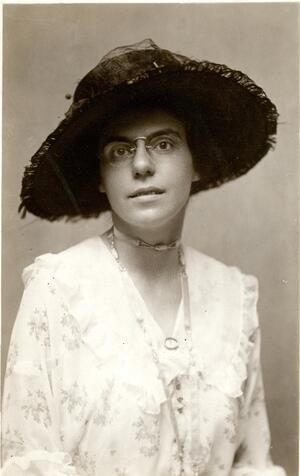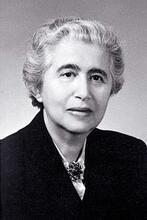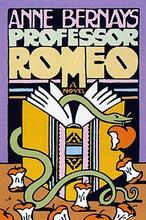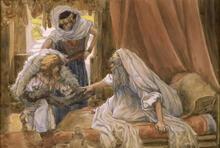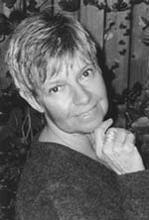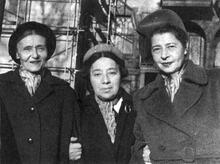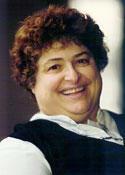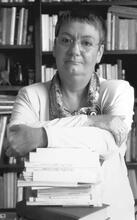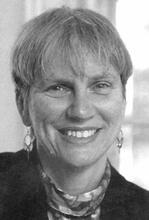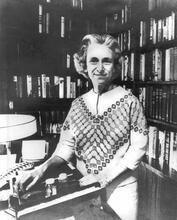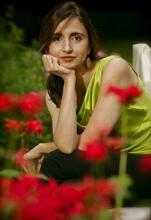Emily Solis-Cohen
Emily Solis-Cohen was born into a distinguished Philadelphia family with roots dating back to the colonial era. She was involved in the Jewish communal affairs of her city, serving on the Jewish Welfare Board, the board of the Hebrew Sunday School Society, and the National Conference of Christians and Jews. Her literary work included translating Hebrew tales, creating a children’s Bible, and writing award-winning poetry based on rabbinic legend. Solis-Cohen also conducted American Jewish historical research. From this new knowledge, she wrote collections of essays that focused especially on Jewish women, such as Women in Jewish Law and Life. Her life’s work encouraged patriotism, fostering a better Jewish-Christian understanding, and improvement of the living conditions of all Jewish women.
Early Life and Philanthropic Work
Prize-winning poet, author, translator, historian, and communal leader Emily Solis-Cohen was born on March 20, 1886, into one of Philadelphia’s most distinguished Jewish families, whose presence in America dated from the colonial era. Solis-Cohen was named after her mother, Emily Grace Solis. Her father, Solomon Solis-Cohen, was a prominent medical doctor and influential Jewish communal figure. Her cousin Judith Solis-Cohen was well known for creating Jewish literature for the blind. Emily, the oldest of four children, had three younger brothers: David Hays, Leon, and Francis Solis-Cohen. She was educated in Philadelphia and attended the University of Pennsylvania. In keeping with a pattern of Philadelphia Jewish women leaders dating from the early nineteenth century, Solis-Cohen never married. She became involved in Philadelphia Jewish communal affairs and is credited with organizing and promoting the Young Women’s Hebrew Association and social centers around the United States. She worked for the Jewish Welfare Board in Philadelphia, serving as a field secretary and consultant on women’s activities. She was also a board member of the Hebrew Sunday School Society and a member of the National Conference of Christians and Jews.
From an early age, Solis-Cohen came into contact with many of American Jewry’s most influential personalities. She corresponded with two United States Supreme Court justices, Louis D. Brandeis and Benjamin N. Cardozo. She also exchanged letters with the author Fannie Hurst, the art historian Rachel Wischnitzerand Henrietta Szold, the founder of Hadassah, who was one of her childhood teachers. Solis-Cohen served as chair of the Philadelphia committee and was a member of the national committee that planned Szold’s seventieth birthday celebration.
Literary Work
Many of Solis-Cohen’s literary efforts aimed at the entertainment and edification of Jewish children. Early in her career, Solis-Cohen wrote David the Giant-Killer, and Other Tales of Grandma Lopez (1908), and translated from Hebrew a selection of allegorical tales designed for young people by the Russian Hebraist Judah Steinberg, published under the title The Breakfast of the Birds and Other Stories (1917). She created “puppet plays” focusing on biblical themes, a “children’s Bible”—The Holy Scriptures: An Abridgment for Use in the Jewish School and Home (1931)—and compiled and edited Lit. "dedication." The 8-day "Festival of Lights" celebrated beginning on the 25th day of the Hebrew month of Kislev to commemorate the victory of the Jews over the Seleucid army in 164 B.C.E., the re-purification of the Temple and the miraculous eight days the Temple candelabrum remained lit from one cruse of undefiled oil which would have been enough to keep it burning for only one day.Hanukkah: The Feast of Lights (1937). Solis-Cohen wrote poetry and received a prize in 1909 for the sonnet “Have We Not One Father” (quoting from Mal. 2:10), based on a rabbinic legend. The sonnet was published in 1922, and later included in an anthology of American Jewish poetry. She also reviewed books for various journals and edited a children’s column for the weekly American Hebrew.
Jewish History
Solis-Cohen was a pioneer in conducting American Jewish historical research. Her most ambitious scholarly effort was a biography of Isaac Leeser, today recognized as one of nineteenth-century America’s most outstanding Jewish leaders. Leeser had led Philadelphia’s Ritual bathMikveh Israel Congregation, the prestigious, traditional Sephardic synagogue her family attended. Solis-Cohen assembled extensive primary sources and worked with the historian Solomon Grayzel to translate into English many of the earliest extant specimens of Yiddish in America in the Leeser collection. Her groundbreaking study yielded two valuable manuscripts: “Isaac Leeser: The Man and his Destiny” and “Isaac Leeser: An American Beginner.” Despite her arduous efforts, the project never was completed, though she did write the entry on Leeser for the Universal Jewish Encyclopedia (1942). As a historian, Solis-Cohen collected notes on a variety of topics, including the founding in 1875 of a Philadelphia Jewish relief group, Ezrat Nashim, whose purpose she records as “to care for poor Jewish women during confinement and to combat the danger that menaced with the operation of midwives.”
Solis-Cohen also wrote specifically for and about Jewish women. In 1925, she published an article called “The Jewish Girl’s Thoughts on Jewish Life” based on “my record of three years’ work with women’s organizations in at least fifty Jewish communities of the Atlantic States,” featuring excerpts from letters received from around the United States and Canada. An abbreviated version appeared in a collection of essays called Jewish Experiences in America: Suggestions for the Study of Jewish Relations with Non-Jews (1930). Solis-Cohen, one of only two women contributors, also provided an appendix: “Suggested Adaptations of General Discussion Outline for Women’s Groups without Trained Leadership.” She authored Women in Jewish Law and Life (1932) and a religious collection for Jewish women entitled Friday Night Stories (1949), and coauthored works called Women in Religion (1936–1941) and The Magic Top.
Later Life and Legacy
Emily Solis-Cohen was one of the last representatives of a distinguished group of Jewish women and men sometimes referred to as the Philadelphia Group. She shared with them a fervent patriotism, a belief in noblesse oblige, and a commitment to both strengthening traditional Jewish life in America and fostering Jewish-Christian understanding. She devoted her life, as an author and as a communal leader, to improving the living conditions, both material and spiritual, of all Jewish women. She died on April 19, 1966, at age eighty.
Selected Works by Emily Solis-Cohen
The Breakfast of the Birds and Other Stories (1917).
David the Giant Killer, and Other Tales of Grandma Lopez (1908).
Friday Night Stories (1949).
Lit. "dedication." The 8-day "Festival of Lights" celebrated beginning on the 25th day of the Hebrew month of Kislev to commemorate the victory of the Jews over the Seleucid army in 164 B.C.E., the re-purification of the Temple and the miraculous eight days the Temple candelabrum remained lit from one cruse of undefiled oil which would have been enough to keep it burning for only one day.Hanukkah: The Feast of Lights (1937).
The Holy Scriptures: An Abridgment for Use in the Jewish School and Home (1931).
Woman in Jewish Law and Life (1932).
AJYB 24:128.
Angelo, F. Michael. “The Professional and Personal Papers of Emily Solis-Cohen, Jr.” Private collection.
Ashton, Dianne. The Philadelphia Group: A Guide to Archival and Bibliographical Collections (1991), and “Souls Have No Sex: Philadelphia Jewish Women and the American Challenge.” In When Philadelphia Was the Capital of Jewish America, edited by Murray Friedman (1993). EJ, s.v. “Solis-Cohen.”
Jewish Experiences in America: Suggestions for the Study of Jewish Relations with Non-Jews. Edited by Bruno Lasker (1930).
Leeser, Isaac. Papers. Isaac Leeser Collection, Center for Judaic Studies, University of Pennsylvania, Philadelphia.
Solis-Cohen, Emily. Papers, 1923–1936. American Jewish Historical Society, Waltham, Mass.
Solis-Cohen Family. Papers. Solis-Cohen Family Collection, Center for Judaic Studies, University of Pennsylvania. UJE.

